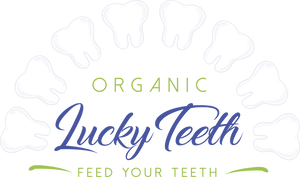
Is Soap Biodegradable? Unveiling the Environmental Impact of Our Cleansing Companion
Soap, an essential part of our daily cleansing routine, plays a significant role in maintaining personal hygiene. However, as environmental concerns continue to mount, questions arise about the biodegradability of soap and its potential impact on our planet. Lets explore everything about biodegradable soaps and how they break down naturally without harming the environment.
Understanding Biodegradability
Biodegradability refers to the ability of a substance to be broken down naturally by microorganisms, such as bacteria, into harmless substances like water, carbon dioxide, and minerals. This process allows the substance to reintegrate into the ecosystem without causing long-term harm to the environment.
Water Sources and the Impact of Soap
When soap is used, it eventually ends up in water sources through wastewater. Traditional soaps contain ingredients like sodium lauryl sulfate (SLS) and triclosan (also found in Toothpaste), which can be harmful to aquatic life and water quality. In particular, SLS has been associated with skin irritation and can persist in the environment for extended periods, impacting aquatic ecosystems.
Liquid Soap vs. Bar Soaps
Liquid soaps, including dish soaps and body washes, have gained popularity due to their convenience and ease of use. However, many liquid soaps contain synthetic additives that are not easily biodegradable. On the other hand, bar soaps, especially those made with natural ingredients like coconut oil and essential oils, tend to be more environmentally friendly and biodegradable.
Chemicals in soap and how they affect Human Health
In addition to their environmental impact, certain chemicals found in conventional soaps can also have adverse effects on human health. One of the most concerning chemicals is triclosan, commonly used in antibacterial soaps. Triclosan has been linked to hormone disruption and antibiotic resistance, raising concerns about its potential long-term effects on human health. Furthermore, some soaps contain artificial fragrances and colorants, which may cause skin irritation and allergies in sensitive individuals. Sodium lauryl sulfate (SLS), a foaming agent present in many personal care products, can strip the skin of its natural oils and lead to dryness and irritation. To safeguard our well-being, it is crucial to opt for biodegradable soaps that are free from harmful chemicals and made with natural, skin-friendly ingredients. Making informed choices about the products we use not only benefits the environment but also promotes our overall health and wellness.
Biodegradable Soaps: How They Break Down
Truly biodegradable soaps are formulated with natural ingredients that can be broken down by bacteria present in soil and water. When these soaps are rinsed off, the biodegradable components are readily broken down by microorganisms, reducing the potential environmental impact.
Environmental Benefits of Eco-Friendly Soaps
-
Reduced Water Pollution: By choosing biodegradable soaps, we contribute to reducing water pollution and preserving the health of aquatic ecosystems.
-
Minimized Carbon Footprint: The biodegradation process of natural ingredients in eco-friendly soaps generates less carbon dioxide, making them more environmentally sustainable.
-
Supporting Sustainable Practices: Opting for biodegradable products encourages the adoption of sustainable practices by manufacturers, benefiting the overall ecosystem.
-
Safer for Wildlife: Biodegradable soaps pose less risk to aquatic life and wildlife, promoting a healthier environment for all living organisms.
-
Eco-Conscious Consumerism: By making environmentally friendly choices, consumers play a vital role in shaping industries towards greener alternatives.
The Downside of Non-Biodegradable Soaps
When non-biodegradable soaps, especially those containing synthetic additives, enter water bodies, they can persist for extended periods. These pollutants accumulate and have detrimental effects on aquatic life and overall water quality. The buildup of these substances in the environment poses significant challenges to both ecosystems and human health.
Tips for Choosing Biodegradable Soaps

-
Read the Ingredients: Look for soaps made with natural ingredients and without harmful chemicals like SLS and triclosan.
-
Check for Certifications: Seek products with recognized eco-friendly certifications, such as USDA Organic, Cruelty-Free, or Environmental Working Group (EWG) verification.
-
Avoid Excessive Packaging: Choose soaps with minimal packaging to further reduce your ecological footprint.
-
Support Local and Sustainable Brands: Opt for products from local and environmentally conscious brands that prioritize eco-friendly practices.
The biodegradability of soap is a critical aspect of its environmental impact. While traditional soaps with harmful additives can pose risks to aquatic life and water sources, biodegradable soaps made from natural ingredients offer a safer and eco-friendly alternative.
By making mindful choices and opting for environmentally friendly options, we can collectively contribute to a cleaner and healthier planet for generations to come. Let's embrace biodegradable soaps and be agents of change in safeguarding our precious environment and overall health.
At Lucky Teeth, our selection is free from harmful chemicals, artificial fragrances, and unnecessary additives, our products are gentle on your mouth, promoting natural hydration and reducing the risk of irritation and allergies. With the invigorating scents of essential oils and the nourishing properties of natural ingredients, our organic eco-friendly oral care products transform everyday cleansing into a blissful self-care experience. Start today by trying our Remineralizing toothpaste or Whitening Mouthwash !

